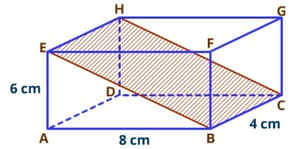Surface Area of Cube, Cuboid and Cylinder
Surface Area of Cube, Cuboid and Cylinder: Overview
This topic defines the area of a cuboid as the sum of the area of each side of a rectangle. There are six sides of a cuboid for which each area is given by multiplying length into breadth. Similarly, area of a cube is the sum of the area of each square side.
Important Questions on Surface Area of Cube, Cuboid and Cylinder
A company packages its milk powder in a cylindrical container whose base has a radius of and a height of . The company places a label around the surface of the container. If the area of the label is , then find the value of considering .
What is the surface area of the bigger cuboid after the smaller cuboid is cut out
What is the total surface area of the smaller cuboid?
What is the area of the bigger cuboid?
The solid shown below is made of three identical cuboids. The dimensions are marked in the figure below.
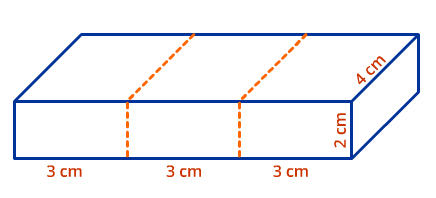
What is the surface area of the above solid?
The block of solid shown below is made of two identical cuboids. The dimensions of the cuboids are marked in the figure.
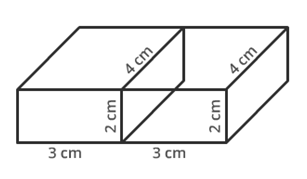
What is the surface area of the above block?
Shown below is a cuboid. Its dimensions are marked on the figure itself.
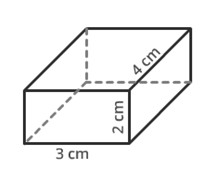
What is the surface area of the above cuboid?
What is the area of the cube before slicing?
What is the total surface area of the triangular prisms that are formed by slicing the cube?
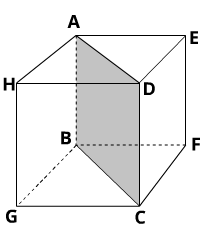
What is the area of the plane ABCD?

A solid cube of is cut into two equal halves by slicing diagonally as shown.
To find the area of plane , we must know the length of and .
What is the length of ?
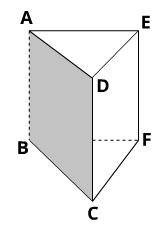
What is the length of wallpaper required?
What is the area of the wallpaper required to be bought taking into account 16% wastage?
What is the area of the wall paper required for the room?
What is the area of the 4 walls of the room?
The sum of the two radii is 14 cm. What is the value of the external radius?
The total surface area of the cylinder is 2640 sq cm and the sum of the external and internal radii is 14 cm. If the height of the cylinder is 28 cm, what is the difference between the two radii of the cylinder?
27 identical cubes of surface area 48 sq cm joined to form a larger cube.
The surface area of the larger cube = _____ sq cm.
The length, breadth and height of a cuboid are ‘a’, ‘b’ and ‘c’ respectively. ab = 48 sq cm, ac = 24 sq cm and bc = 18 sq cm.
The dimensions of the cuboid is changed such a way that its length is ‘3a’, breadth is ‘$ \frac{\text{b}}{2}$’ and height is ‘5c’.
Surface area of the new cuboid is _____ sq cm.
Shown below is a cuboid of dimensions 4 cm × 6 cm × 8 cm. The cuboid is split into two identical wedges by a plane perpendicular to AEFB, along its diagonal, as shown below.
The surface area of one of the wedges is _____ sq cm.

